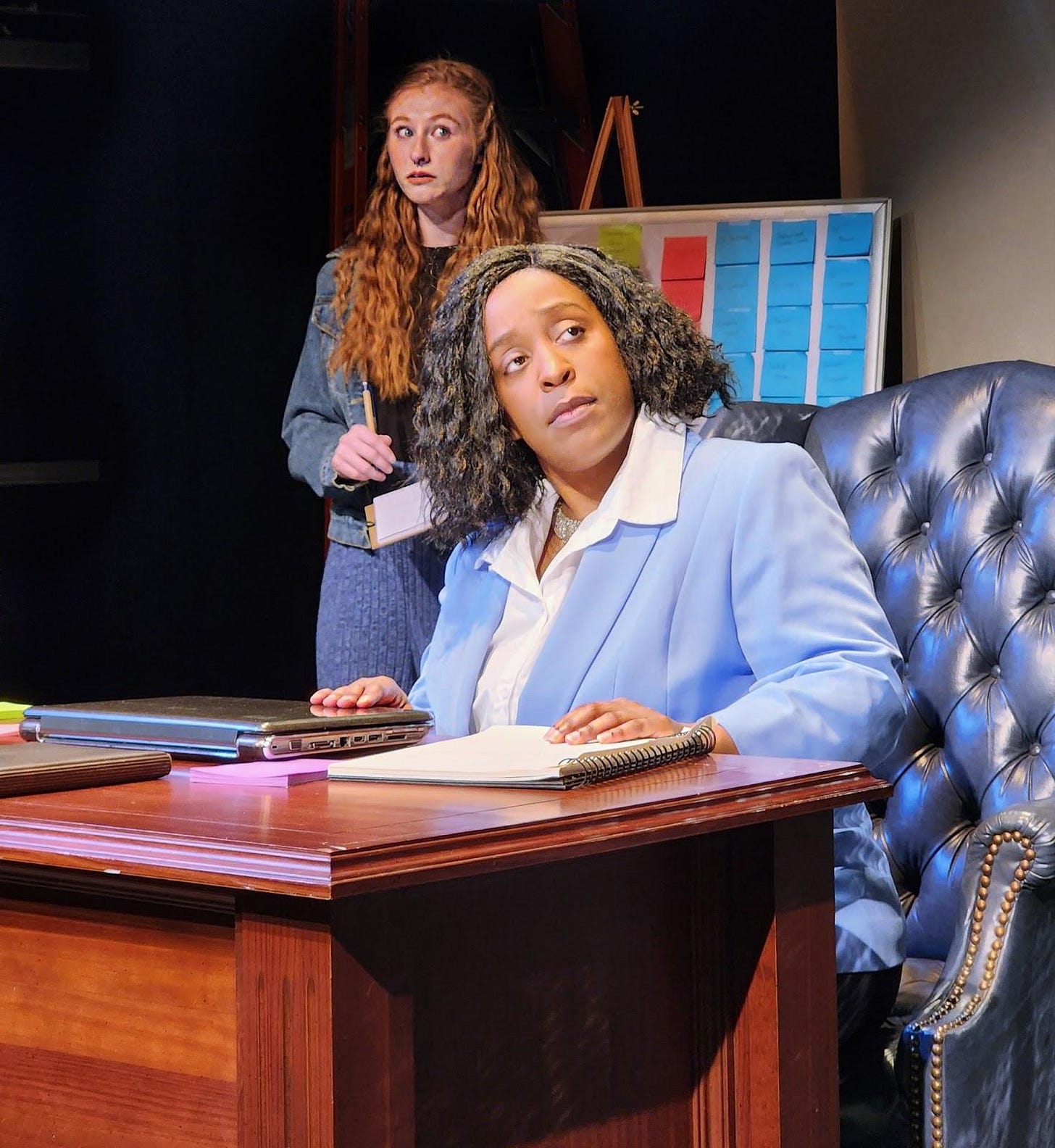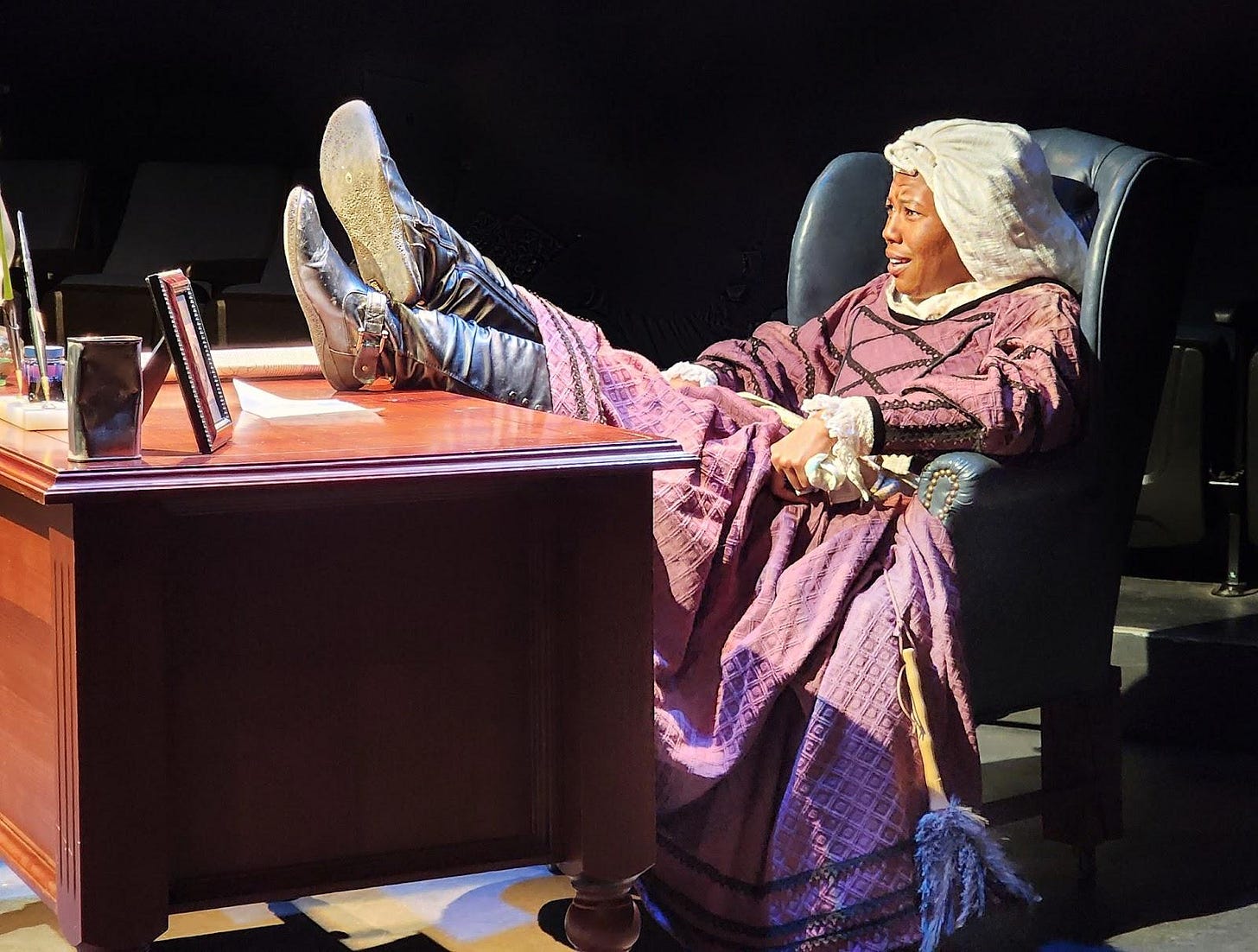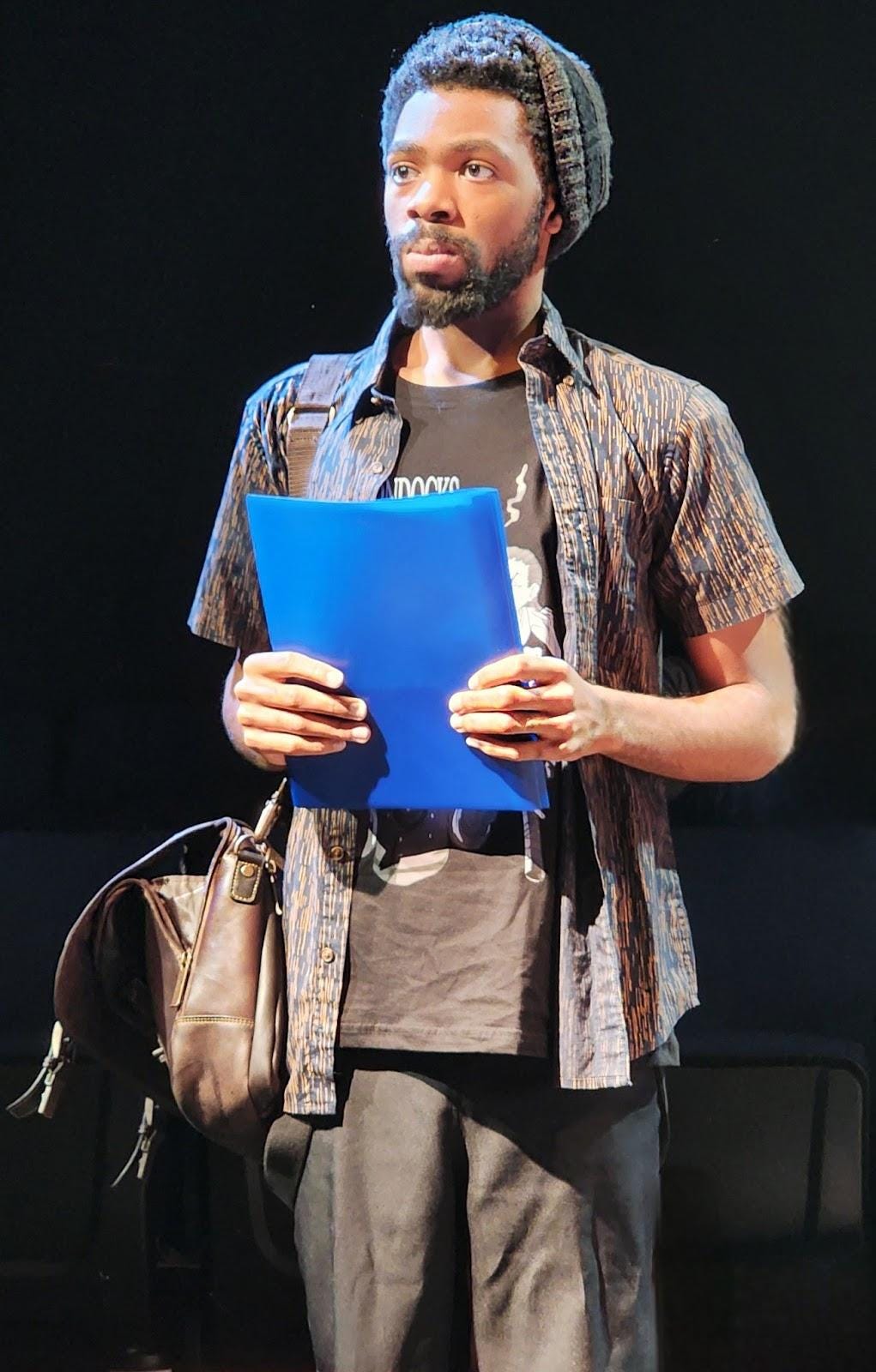Stage: "Confederates" at Three Bone Theatre
Jesse Boykin Kimmel returns with his review of the latest production at Charlotte's Three Bone Theatre
Editor’s Note: Y’all Weekly, in partnership with our sister publication Soccer Sheet, is hosting our first-ever live event at the Independent Picture House on February 20.
The event will start with a reception (cash bar), include the first ever presentation of the Footy Awards, and end with a screening of “Gracie” staring Elizabeth Shue for all attendees.
You can buy tickets at this link - the first 10 Y’all Weekly subscribers who use the Promo Code “YWSubscriber” when they check out will score a free individual ticket (up to $17 value).
Thanks to the Independent Picture House for hosting, and to The Charlotte Post and Queen City Football Chronicle for making the event possible! Now, on to the review …
Across a 160-year gap, Confederates tells the stories of Sara, an enslaved woman in her twenties in the American south, and Sandra, a political science professor at a present-day Ivy League university.
With some humor, Dominique Morriseau’s 2020 play illustrates how the systems we are bound to trick us out of trust and intimacy, and how internalized racism and sexism can drive suspicion and paranoia. With no shortage of sincerity, Confederates also insists we confront these challenges together or risk isolation.
“Confederates” at Three Bone Theatre
Written by Dominique Morriseau
Directed by Donna Marie McMillian
Starring Valerie Thames & Nonye Obichere
February 9-24, 2024
Thursdays, Fridays, Saturdays at 8 p.m.
Sundays at 2 p.m.
Content Warning: “Confederates” contains strong adult language, partial nudity, adult themes around race and gender, and descriptions and depictions of anti-Black and anti-Female sentiments and violence. Recommend for ages 16+.
Sandra, a Black professor with a touch of celebrity played by Valerie Thames, has found an image tacked to her office door of a Black wetnurse, a slave, nursing a white baby. Her head has been photoshopped onto the woman’s body. The play opens with Sandra putting her department on alert and demanding an investigation.
The narrative then moves to the other side of Zachary Tarlton’s set where Sara, played by Nonye Obichere, prepares to stitch up her wounded brother in an 1860s slave cabin.
The play progresses with this juxtaposition, side to side, scene by scene. Tarlton’s choice to place most of the alternating action at opposite ends of the space effectively underscores the distance between Sara and Sandra. Audience members seated close to Sandra’s side of the stage may find themselves leaning to engage with Sara far in the past, deepening the play’s sense of search for what connects these two women.
Obichere is heartbreaking and inspiring as Sara, exhausted by a lifetime of dehumanization, disappointment, and pain. Knowing she cannot bear children, she has lost hope not only for escape from bondage but also for companionship. At first, her musings around the thought of her own freedom seem perfunctory and performative, but Obichere skillfully paces and controls the hope awakening within her.
Sara understands the control she could wield if she heeded no one but herself, but those close to her put up obstacles at every turn. Her escaped brother, now a Union army recruit, will not allow her to follow him and join the fight. She should maintain distance from her white captors, but the newly abolitionist Missy Sue reassigns Sara to the slave master’s own office to obtain military secrets. The only threat of exposure comes from Luanne, who was raised in slavery with her.
Thames’s Sandra is also guarded, deploying a perfect professional panache which remains under assault throughout the play. In a constant struggle to honor herself while comporting with expectations, Sandra carries pain and loss of her own but is loath to let it show. Thames reminds us how numb we can become when we leave ourselves behind to participate in the theater of the working world.
Now at the height of her profession in a position she fought for, Sandra is challenged by a colleague and a student who, each in their own way, view her as party to the institutional roadblocks she herself overcame. To her counterparts, Sandra, a tenured professor who provides commentary on CNN and MSNBC, represents possibility in their own lives. Sandra is blindsided by their flat expectations of her as a role model and a guide. They, in turn, are not expecting the three dimensional Sandra they actually meet.
Despite the stark differences between the challenges both Sara and Sandra face, some of their injuries take similar shapes. They are both full of sorrow, and neither of their lives allow them to heal. Sandra and Sara find themselves secondary to the drive of everyone in their orbit. When they are able to come up for air it is all they can do to maintain their boundaries without being cast as the villains.
Actors Daylen Jones, Holli Armstrong, and Jess Johnson are all cast in dual roles, each of them a character in both Sara’s and Sandra’s lives. Morriseau plans for the double-casting with nuance, the characters neither one-to-one mirrors nor foils of each other. Director DonnaMarie honors the delicacy of this structure, with Jones, Armstrong, and Johnson shifting between identities rather than transforming.
Armstrong’s turns as Missy Sue and Candice are both unfiltered, though one is airy, romantic, and unabashed, the other plucky, pensive, and somewhat more abashed. She leans into the comedy of her characters with great effect, sometimes partnering with sound designer Tiffany Eck to play for laughs. Jones is matter-of-fact and duty driven as both escaped slave turned Union recruit Abner and poli sci student Malik. He gives Malik a scholar’s wavering, experimental confidence and a slightly bookish tone, but Jones’s sincerity anchors both roles.
Johnson portrays the only other Black women we meet in these worlds – Luanne, and Sandra’s fellow professor Jade. She is inscrutable and confident in both past and future, cast perfectly for what may be the most difficult job on the Confederates stage. Turned rivals by their institutions in spite of themselves, the pairs Sandra and Jade, Sara and Luanne, prickle and soften, searching for ways to connect, marveling aloud at their inability to ally with one another. Luanne and Jade are puzzles our main characters cannot quite solve, inspiring mistrust in one moment and admiration in the next.
By design, Morriseau’s supposed parallels are not straight lines; there is not a clean reflection across the gulf of a century and a half. Yet both settings are full of people who earnestly wish to right the wrongs they see before them, lost as they are in the fog of their own perspective. By the end of the play, as it was at the beginning, justice for Sara and Sandra is within sight but still out of reach.
Confederates runs for two more weeks at the Arts Factory, located at 1545 West Trade St in Charlotte.







